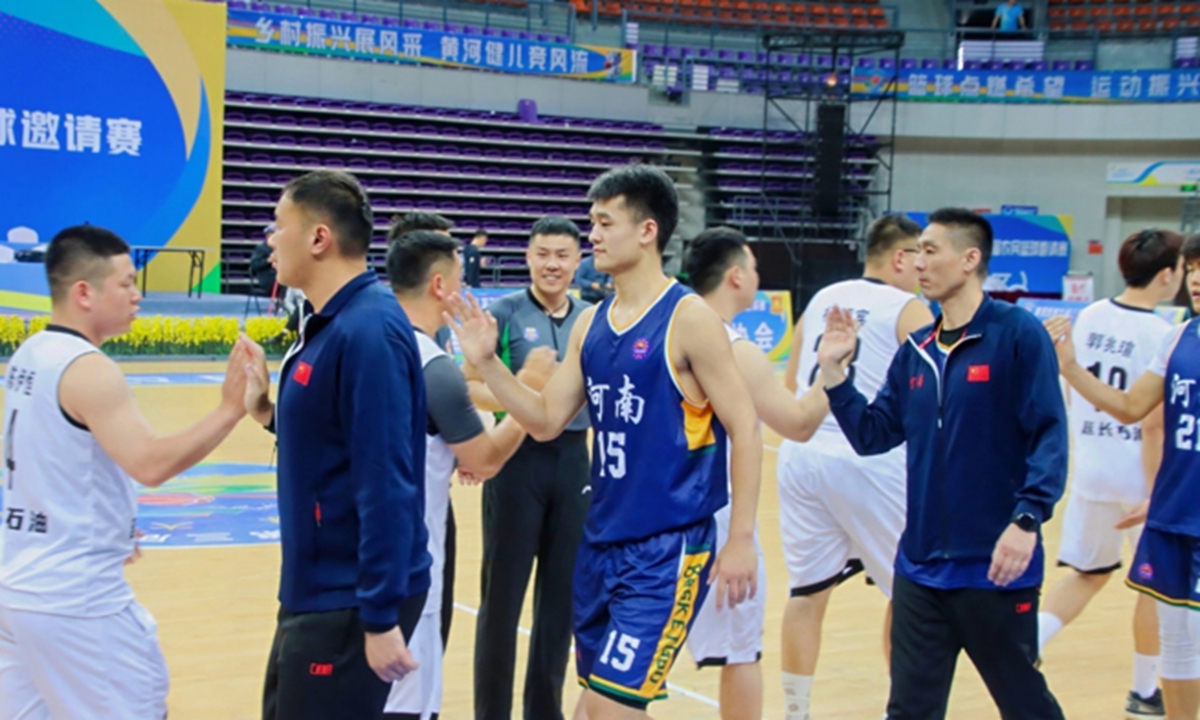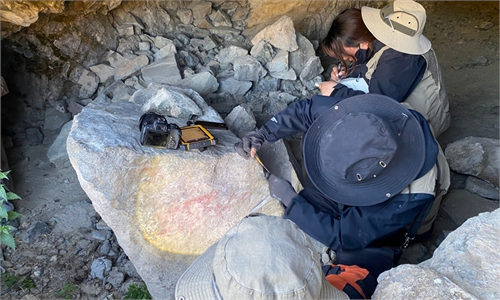ARTS / CULTURE & LEISURE
Yellow River Basin farmers’ basketball game kicks off
Sports event will also be a cultural showcase

Photo: Courtesy of the Sports Bureau of Xining.
A regional farmers' basketball game kicked off on Thursday in Xining, capital city of Northwest China's Qinghai Province. Bringing together 10 teams from nine provinces and autonomous regions along the Yellow River, the grassroots sporting event is more than just a contest of athleticism, but offers the squads a platform to showcase the energy of a new era of Chinese rural life and to strengthen bonds across provinces.Launched by the General Administration of Sport, the Yellow River Basin Farmers' Basketball Invitational is now one of the most influential mass sports events in China. Following the first tournament in Yinchuan, Northwest China's Ningxia Hui Autonomous Region in 2023 and the second in Linxia, Northwest China's Gansu Province in 2024, the 2025 tournament runs from Thursday to Wednesday with 10 teams from North China's Shanxi Province and the Inner Mongolia Autonomous Region, East China's Shandong Province, Central China's Henan Province, Southwest China's Sichuan Province, Northwest China's Shaanxi, Gansu, and Qinghai provinces, and the Ningxia Hui Autonomous Region, as well as the host city Xining.
"This morning, we played against the Sichuan team. They were fast, and their shooting accuracy was high, which made the game quite intense. I'm really looking forward to facing teams from Ningxia, Henan, and Gansu and learning from one another," said Cui Qingzhuang, a player of the Shandong team who is participating in the event for the second time and finished a group stage game against the Sichuan team on Thursday morning.
He told the Global Times that unlike village basketball (VBA), which involves township and county-level teams, the event featured a much higher level of competition as it is organized on a provincial level, with one 12-person team representing each province.
"Our team members know each other well. We've played together in many grassroot basketball games, such as the 2023 VBA in Southwest China's Guizhou Province and Shandong provincial level VBA," Cui said, emphasizing that he enjoyed playing in these games because they can bring joy to local villagers, attract tourists from other areas, and help promote local agricultural products and cultural specialties.
Beyond the matches, the event will also be a cultural showcase. During the opening ceremony at the Qinghai Sports Center Gymnasium on Thursday evening, intangible cultural heritage performances, such as traditional Tibetan Guozhuang dance and Tu ethnic Anzhao dance, were presented to vividly recreate the winding majesty of the Yellow River's "19 bends."
The opening also set up a special "Yellow River Agrarian Civilization" exhibition zone. This zone features all the various team uniforms, which were designed with regional intangible cultural heritage. Shandong's jerseys feature Weifang kite designs, while Gansu's players will sport Dunhuang-inspired flying apsaras wristbands - a compelling fusion of local culture and sports pride.
Since its inception in 2023, the tournament has become a dynamic bridge fostering sports and cultural exchanges across the Yellow River Basin by showing the spirit of modern Chinese farmers, bringing new vitality to nationwide fitness programs, promoting the growth of basketball in rural areas, and contributing to rural revitalization.
Wang Zhixun, head of the mass sports section of the Xining Sports Bureau, told the Global Times on Thursday that the participating teams will have a cultural tour in Qinghai in addition to the competition.
"As the source of the Yellow River, Qinghai had planned to host the first edition of the tournament featuring provinces and regions along the river. We are still honored to host the tournament this year and it's the first time that Xining is able to compete as the host city," Wang noted.
During the tournament, every team will have opportunities to visit local culture tourism spots, taste local cuisine, and gain first-hand experience in intangible cultural heritage, Wang said.
Ma Rui, an official with the Chengdong District Culture, Tourism and Sports Bureau of Xining, told the Global Times that the participating teams will come to a local workshop to create filigree Thangka, a unique Xizang intangible cultural heritage combining Thangka with filigree craftsmanship.
Gao Qiang, a Ningxia team member, told the Global Times on Thursday that the tournament has evolved into a bonding platform for provinces and regions along the Yellow River.
"In addition to our custom-made wristbands that showcase the image of the Dunhuang Mogao Caves, we will sing Linxia Huaer folk songs during the event, allowing more people to learn about our cultural heritage," said Gao.
Linxia Huaer is a vibrant folk song tradition practiced by multi-ethnic communities in the Linxia Hui autonomous prefecture, Gansu Province. It was recognized as a UNESCO Intangible Cultural Heritage in 2009.



